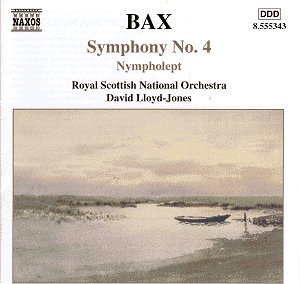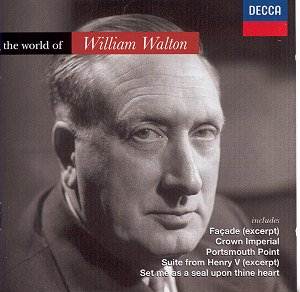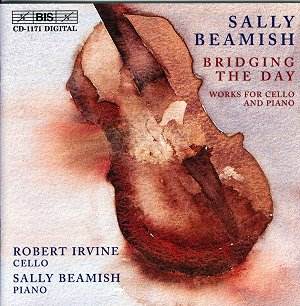 Composer: Sir Arnold BAX (1883-1953)
Composer: Sir Arnold BAX (1883-1953)
Works: Symphony No. 4; Overture to a Picaresque Comedy; Nympholept
Performers: Royal Scottish National Orchestra; David Lloyd-Jones, conductor
Recording: 25-25 August 2000, Henry Wood Hall, Glasgow
Label: NAXOS 8.555343
Sir Arnold Bax, a titan of British orchestral music, encapsulated the essence of nature and mythology through his symphonic works. His Symphony No. 4, composed around 1930, stands as a pivotal composition within his oeuvre, boasting a rich tapestry of orchestral color and emotional depth. This symphony, although less frequently performed than the celebrated Third, merits serious attention for its innovative orchestration and structural integrity. The accompanying pieces, the Overture to a Picaresque Comedy and Nympholept, further illuminate Bax’s range and stylistic evolution, making this recording a significant contribution to the understanding of his musical legacy.
David Lloyd-Jones leads the Royal Scottish National Orchestra with a clarity that highlights the symphonic momentum of the Fourth. This interpretation feels notably ‘leaner and fitter’ compared to Bryden Thomson’s earlier recording. Lloyd-Jones prioritizes the forward thrust of the symphonic argument, allowing the work’s intricate counterpoint and thematic development to emerge with greater clarity. For instance, the slow movement, Lento moderato, serves as the emotional core of the symphony, characterized by a haunting melody that unfolds with lyrical grace. The orchestra’s lush string playing and the poignant woodwind lines accentuate the movement’s introspective character, drawing the listener into Bax’s rich soundworld. The bass drum’s subtle yet potent contributions are particularly noteworthy, enhancing the work’s dynamic spectrum without overwhelming its delicate textures.
The Allegro finale bursts forth with a vitality that is both spontaneous and exhilarating. Lloyd-Jones navigates the shifting rhythmic landscapes with deft precision, allowing the thematic material to flourish amidst moments of turbulence and resolution. The final bars, marked by sweeping power, are justified by the cohesive orchestral playing and the heightened sense of dramatic urgency. The engineering of the recording captures the orchestra’s full sonic range, providing a clear and immersive listening experience. The balance achieved allows for both the grandeur of the orchestral forces and the finer details of Bax’s orchestration to shine through, making a compelling case for this recording.
The Overture to a Picaresque Comedy, while lighter in substance, serves as an engaging complement to the symphonic weight of the Fourth. Its lively energy and colorful orchestration showcase Bax’s ability to craft vivid musical narratives. Meanwhile, Nympholept offers a fascinating glimpse into the composer’s early style, transformed here into a lush orchestral tapestry that speaks to his Romantic inclinations. The orchestral rendition brings out the work’s sensuousness, contrasting sharply with the symphony’s more serious nature, and further demonstrates the versatility of the Royal Scottish National Orchestra under Lloyd-Jones’s baton.
This recording is not merely a documentation of Bax’s works but a revitalization of his orchestral language, offering insights that resonate deeply within the contemporary concert landscape. The thoughtful interpretations and high-caliber performances presented here ensure that Bax’s Symphony No. 4 stands proudly among the most significant works of 20th-century British orchestral music. It is a vital addition to the discography of Bax, and a recording that will undoubtedly enrich the repertoire for both performers and listeners alike.



